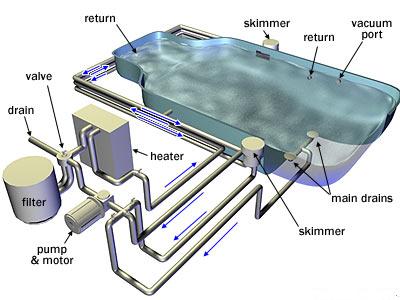Pool Masters Leak Detection & Repair
Specializing In Finding Leaks When Others Can't!
HAVE QUESTIONS?
832.203.2572
info@poolmastershouston.com
Se Habla Espanol
A Standard Inspection & Repair of a Leaking Pool Includes:
Inspect the Equipment Pad:
Check the pump, motor, filter, valves, heater, chlorinator and backwash for leaks.
Skimmers:
Check the housings, the bond between the pool and the skimmer, gaskets, tiles in skimmer entrances
Pipes:
Isolate and pressurize the plumbing to make sure that every pipe underground holds pressure.
Stairs:
Inspect fiberglass stairs, dye test the stair molding gasket and screws, check seals and gaskets around return pipe fittings
Underwater Inspection - Gunite / Shotcrete / Cement or Fiberglass Pools:
Visually, and with leak detection dye, inspect the surface of the pool shell for cracks and leaks, check every pipe fitting for leaks, check to tile surround and entrances to the skimmers.
Lights:
Inspect and dye test the light conduit, ground fittings, rim seal gaskets, screws, and niche housing for leaks, cracks, or corroded metal.
Hydrostatic Valves:
Dye test hydro valves, test and evaluate valve function, clean seals.
Main Drain Pipes, Sumps, Drain Safety Covers:
Isolate and pressure test the main drain pipe(s), check the sump for leaks, evaluate the main drain safety cover for function, properly secured.
As the underwater leaks are found and confirmed with leak detection dye, they are repaired with a variety of glues, solvents, epoxies, caulks, rubber sealants, patches, plaster or fiberglass. All repair materials are designed to be applied underwater. Swimming may resume immediately or very soon after the repairs are completed. We will let you know if we find any underground pipes that need to be repaired. And give you an estimate of the repair costs upon our findings.

